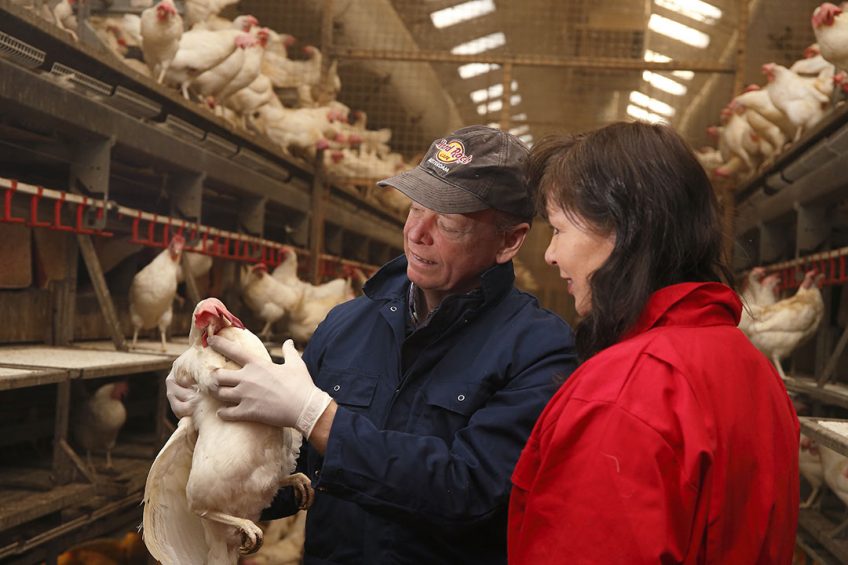Feed additive helps strengthen bones in laying hens

Research has shown that bone quality in egg-laying hens benefits from betaine as well as from traits that help their skeletons store calcium.
Betaine, a common feed supplement, is widely used as a feed additive in pigs, poultry, and fish production, and scientists believe it could complement programmes to improve bone quality in laying hens that are at risk of osteoporosis. In a separate study, it was found that genetic selection of hens with an adaption to store calcium, known as mineralisation of medullary bone, could also improve bone quality. The timing of puberty could also play a role in bone strength, but scientists found that the amount of eggs a hen produces has no effect on their bone quality. Findings from both studies could aid poultry breeders in deciding which animals to breed, researchers at Edinburgh’s Roslin Institute say.
Dietary impact of betaine
Scientists investigated the effects of a nutritional intervention on chicken bone quality following previous results which had suggested it might play a role. Birds were fed with 1 of 4 diets containing different amounts of betaine, from when they were hatched until when they stopped laying eggs. Blood and bone samples were collected at different stages. Analyses measured the concentration of blood component that is inversely linked to bone quality, and bones were examined with x-rays and a bending test.
Adding dietary betaine improved bone strength in laying hens without affecting egg production or quality. The study, which has been published in Poultry Science, was funded by animal nutrition technology company AB Vista. Dr Natasha Whenham, AB Vista research and development manager, said: “The performance benefits of using betaine as a feed additive in poultry diets are thought to be well known. However, understanding how this additive can be used to alleviate welfare concerns in laying hens through improved bone quality, without affecting egg quality or production, is an exciting development and extends benefits of betaine further.”
“Poultry education must constantly adapt to the new reality”
Professor Sjaak de Wit holds influential positions in the poultry veterinary sector and has strong opinions on many poultry issues. De Wit’s view is that universities across the globe need to professionalise when it comes to poultry education.
Hen bone health
The related study showed that hens that lay lots of eggs don’t experience a loss of bone quality. Carried out with the Swedish University of Agricultural Science, breeding company Lohmann Breeding and the University of Granada, Spain, the results have published in Genetics Selection Evolution. Funded through the European Union Animal Health and Welfare ERA-NET scheme, bone strength was measured through a bending test, X-rays and chemical composition.
Commenting on the results, Professor Ian Dunn, personal chair of Avian Biology at the Roslin Institute, said researchers had wanted to test whether the amount of eggs produced by egg laying hens made them more susceptible to keel bone damage and bone fractures, but found no demonstrable effect. “We observed that the onset of puberty and mineralisation of the medullary bone, which are specific to laying hens, affect bone quality. Breeders could use genetic, environmental, and management factors to influence these traits to improve the quality of the skeleton of laying hens,” he added.












